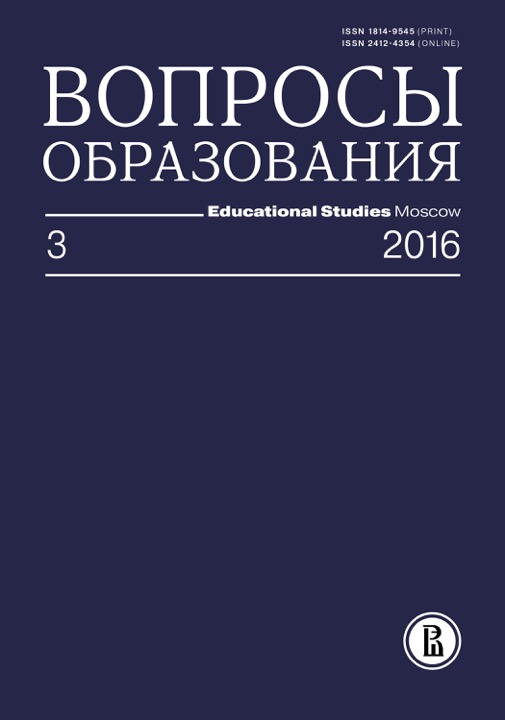Парадокс «практических либеральных искусств». Пример Вагнер-колледжа и его значение для либерального образования в Восточной Европе
Аннотация
Анализируется учебный план Вагнер-колледжа как вариант парадоксального реформирования, осуществленного в рамках современной системы либерального образования. План Вагнер-колледжа для практических свободных искусств преодолевает традиционное разделение образования на либеральное и профессионально-техническое, каковое все чаще ставится под сомнение в связи с экономической ситуацией, в которой находятся колледжи, а также в связи с тем, что в развитых странах меняются требования к работникам и их умениям. Прецедент Вагнер-колледжа может иметь большое значение для европейских учреждений, работающих по модели либерального образования. Это в основном государственные колледжи (программы), но сейчас они осуществляют свою деятельность в контексте, все более напоминающем тот, в котором Вагнер-колледж оказался в начале 1990‑х годов. В своих преобразованиях авторы реформы в Вагнер-колледже исходили из трех допущений: что обучение—процесс практический, что высшая школа может оказать реальное влияние на жизнь местного сообщества и что обширные междисциплинарные знания более чем полезны для подготовки к будущей карьере. Эти утверждения, пусть и дискуссионные, вполне в духе американского «прагматического консенсуса», упрочившегося в последние три десятилетия в сфере образования по модели свободных искусств. Для восточноевропейского либерального образования, поле которого постепенно расширяется, Вагнер-колледж предлагает интересный пример комплексной образовательной концепции, внедренной за счет скромных ресурсов. Стратегию развития либерального образования в Восточной Европе требуется планомерно расширять и приспосабливать к интересам основных стейкхолдеров (как это уже сделано в Нидерландах и делается в Великобритании), а также преодолевать неолиберальное давление и сопротивление со стороны преподавателей. Обсуждение примера Вагнер-колледжа может положить начало столь необходимой дискуссии о том, как сделать это, не утратив сути и духа обучения по модели свободных искусств и наук.








